The Law on Cultural Heritage (amended) was passed by the National Assembly on the afternoon of November 23, with 413/422 delegates in favor, consisting of 9 chapters and 95 articles, taking effect from July 1, 2025.

Continuing the 8th Session, on the afternoon of November 23, the National Assembly passed the Law on Cultural Heritage (amended) with 413/422 delegates in favor.
The Law on Cultural Heritage (amended) consists of 9 chapters and 95 articles, taking effect from July 1, 2025.
The Law on Cultural Heritage regulates cultural heritage, activities of management, protection and promotion of cultural heritage values; rights, obligations and responsibilities of agencies, organizations, communities and individuals in activities of management, protection and promotion of cultural heritage values of the Socialist Republic of Vietnam.
Reporting before the National Assembly voted to approve, Chairman of the Committee on Culture andEducation Nguyen Dac Vinh said that during the discussion, some opinions agreed to establish a Cultural Heritage Conservation Fund to mobilize resources to support a number of activities to protect and promote the value of cultural heritage. Some opinions suggested considering not establishing this Fund.
According to the National Assembly Standing Committee, cultural heritage is a valuable asset of ethnic communities. In recent years, the state has paid attention, allocated budgets, and mobilized resources to protect and promote the value of cultural heritage, but the results have been limited and have not met requirements.
On political , legal and practical grounds, the National Assembly Standing Committee agreed with the Government's proposal on the establishment of a Cultural Heritage Conservation Fund, which was approved by the majority of National Assembly deputies.
The establishment of the Fund is necessary, creating a mechanism to mobilize additional social resources to support some truly necessary and specific activities in the conservation of cultural heritage, but the state budget cannot meet them, such as: protecting intangible cultural heritage at risk of being lost or forgotten; preserving, renovating, restoring, protecting and promoting the value of relics; purchasing and bringing relics, antiques, national treasures, documentary heritage, rare documents on intangible cultural heritage of Vietnamese origin from abroad to the country.
The Fund's financial resources are formed on the basis of aid, sponsorship, support, and donations from domestic and foreign organizations and individuals and other legal financial sources; the state budget does not provide financial support for the Fund's activities.
To ensure compliance with the conditions of provinces and centrally-run cities, the National Assembly Standing Committee has directed the review, adjustment and completion of the Fund to only support funding for a number of key and focal activities; at the same time, adjusting and supplementing the regulation that the Provincial Chairman shall, based on the actual situation of requirements, the ability to mobilize resources, efficiency and feasibility, consider and decide whether or not to establish a Fund for the preservation of cultural heritage in the locality.
The draft Law after being accepted and revised includes 9 chapters and 95 articles, 7 articles less than the draft submitted at the 7th Session, closely following the goals, viewpoints and major policies approved by the National Assembly, institutionalizing the Party's policies, overcoming shortcomings and limitations in the implementation of the Law on Cultural Heritage, improving the effectiveness and efficiency of management, protection and promotion of cultural heritage values.
Chairman Nguyen Dac Vinh said that compared to the current Law, the Draft Law has basic new points, such as specifically defining the establishment of cultural heritage according to each type of ownership: public ownership, common ownership, private ownership in accordance with the Civil Code and other relevant legal provisions.
Prescribe state policies on activities to protect and promote cultural heritage values, prioritize state budget allocation for specific activities; train and foster human resources to participate in the management, protection and promotion of cultural heritage values.
Complete the prohibited acts to ensure more accuracy and completeness, as a basis for guiding implementation, inspection, and handling of violations in protecting and promoting the value of cultural heritage.
Another new point is that the Draft has specifically identified cases of adjusting the boundaries of protection zones 1 and 2 of relics, world heritage areas and buffer zones of world heritage sites; stipulating principles and authority to adjust the boundaries of protection zones to ensure feasibility when applied in practice.
Specific regulations on repair, renovation, construction of works and individual houses inside and outside relic protection areas, regulations on management of relics, antiquities, national treasures, handling of discovered and handed over relics and antiquities.
The draft also stipulates policies to protect and promote the value of documentary heritage, and adds policies to support the development of the museum system, said Mr. Nguyen Dac Vinh.
According to transitional regulations, activities, plans and projects in relic protection areas that have been appraised and approved by competent authorities before the effective date of this Law shall be implemented in accordance with the provisions of the Law on Cultural Heritage No. 28/2001/QH10, which has been amended and supplemented by a number of articles under Law No. 32/2009/QH12./.
Source



![[Photo] More than 17,000 candidates participate in the 2025 SPT Competency Assessment Test of Hanoi National University of Education](https://vphoto.vietnam.vn/thumb/1200x675/vietnam/resource/IMAGE/2025/5/17/e538d9a1636c407cbb211b314e6303fd)

![[Photo] National conference to disseminate and implement Resolution No. 66-NQ/TW and Resolution No. 68-NQ/TW of the Politburo](https://vphoto.vietnam.vn/thumb/1200x675/vietnam/resource/IMAGE/2025/5/18/adf666b9303a4213998b395b05234b6a)
![[Photo] General Secretary To Lam visits exhibition of achievements in private economic development](https://vphoto.vietnam.vn/thumb/1200x675/vietnam/resource/IMAGE/2025/5/18/1809dc545f214a86911fe2d2d0fde2e8)

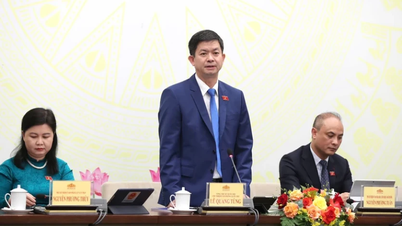
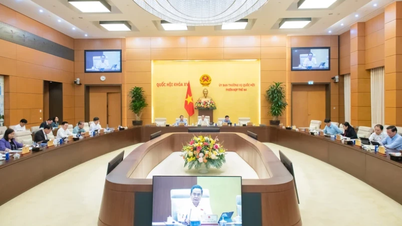
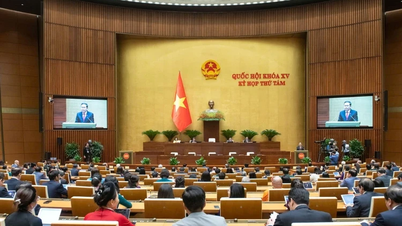





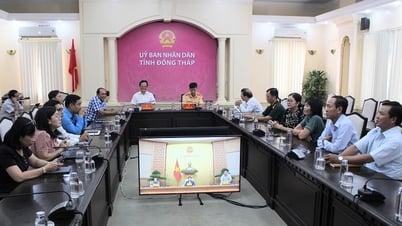

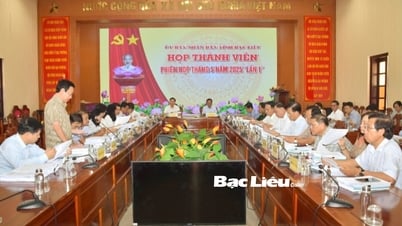









![[Infographic] Numbers about the 2025 High School Graduation Exam in Dong Thap Province](https://vphoto.vietnam.vn/thumb/402x226/vietnam/resource/IMAGE/2025/5/17/c6e481df97c94ff28d740cc2f26ebbdc)
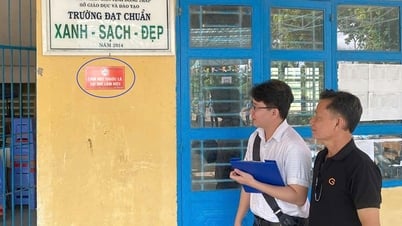
![[Photo] Prime Minister Pham Minh Chinh chairs meeting on science and technology development](https://vphoto.vietnam.vn/thumb/1200x675/vietnam/resource/IMAGE/2025/5/17/ae80dd74c384439789b12013c738a045)































































Comment (0)